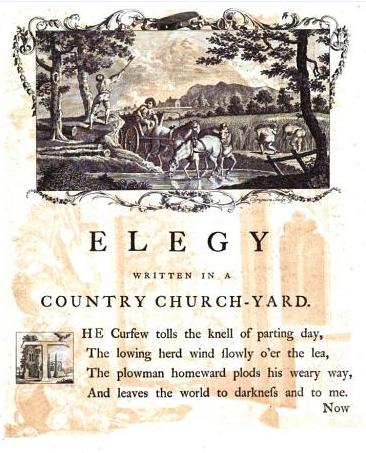Colour Idioms part 1 - The Colour Red / Idiomas sobre Cor parte 1 - A Cor Vermelha
Like a red rag [to a bull]
A
provocation (which can be deliberate or accidental, but is most often
deliberate) that can be expected to cause a strong emotional reaction,
frequently leading to anger or violence. The belief that bulls react
particularly badly to the colour red is so widespread as not to require
further explanation here. (They are in fact colour-blind, like most
mammals, but will certainly become irritated if a moving object is
thrust into their face, as would many humans in similar circumstances!).
Often the terms "like a red rag", or even "[something] was a red rag"
are used - the reference to a bull is in these cases implied and
familiar to native speakers.
"When
John started mocking Steve for supporting the losing team after the
match, it was like a red rag to a bull. I honestly thought he was going
to punch him."
Uma
provocação (que pode ser deliberada ou acidental, mas normalmente
deliberada) a qual pode-se esperar que cause uma reação emocional
forte, frequentemente gerando raiva ou violência. A crença de que touros
reagem negativamente perante a cor vermelha é comum portanto não requer
maiores explicações. (Na verdade não enchergam cores como a maioria dos
mamíferos, mas certamente ficarão irritados se um objeto é movimentado
muito perto de suas caras, assim como humanos em circunstâncias
similares). Frequentemente os termos "como um pano vermelho", ou
mesmo"[algo] foi como um pano vermelho" são usados; a referência a bois
nesse caso são implicadas e familiares a falantes nativos. "Quando John
começou a zombar Steve por torcer pelo time que perdeu depois do jogo,
foi como um pano para um boi. Eu honestamente pensei que ele iria
dar-lhe um soco".
Tradução: Como um pano [para um boi].
Red tape
_-_14.jpg/500px-NARA_Backstage_Pass_(2011-08)_-_14.jpg) Bureaucracy
that is seen as excessive or pointless, particularly the type that is
produced by government offices and officials. Often this idiom is
incorporated into a phrase in a particularly colourful way, as though
the red tape is an actual, physical object by which officialdom is
preventing a person from doing what they want or need to do, although
this expression is usually understood to be purely figurative.
Bureaucracy
that is seen as excessive or pointless, particularly the type that is
produced by government offices and officials. Often this idiom is
incorporated into a phrase in a particularly colourful way, as though
the red tape is an actual, physical object by which officialdom is
preventing a person from doing what they want or need to do, although
this expression is usually understood to be purely figurative.
"Thanks to the new law, I can't sell my old car without being wrapped up in miles of red tape!"
"Look, I'd like to help you out, but my hands are literally tied with red tape due to the regulations."
"The police would be able to arrest more criminals, if they didn't spend most of their time untangling red tape."
Burocracia
vista como excessiva ou desnecessária, em particular o tipo que é
produzido por escritórios do governo e funcionários. Muitas vezes esta
frase idiomática é incorporada em uma frase de um modo especialmente
colorido, como se a burocracia fosse um objeto real, físico pelo qual o
funcionalismo está impedindo uma pessoa de fazer o que eles querem ou
têm de fazer, embora esta expressão seja normalmente entendida como
puramente figurativa.
"Graças à nova lei, não posso vender o meu velho carro sem ser enrolado em milhas de fita vermelha!"
"Olhe, eu gostaria de te ajudar, mas as minhas mãos são literalmente atadas com a fita vermelha devido às regulações."
"A
polícia seria capaz de deter mais criminosos, se eles não passassem a
maior parte do seu tempo desemaranhando fita vermelha."
Tradução: fita vermelha.
Red letter day
A
particularly important or memorable date or occasion. This phrase
apparently comes from medieval times, when it was the custom for the
scribes who wrote the ecclesiastical calendars to mark particularly
important days such as feasts and saint's days with red, ornate
capitals.
"The day when she started her first job would forever be a red letter day for Davinia."
Uma
data ou ocasião especialmente importante ou memorável. Esta frase
aparentemente vem de tempos medievais, quando era o costume dos escribas
que escreveram que os calendários eclesiásticos marcassem dias
especialmente importantes como festas e os dias de santo com capitais
vermelhas e ornadas.
"O dia que ela começou o seu primeiro emprego será para sempre um dia de carta vermelha para Davinia."
Tradução: dia de letra vermelha.
In the red
In
debt, doing poor business which is likely to lead to debt, or losing
money. This expression is normally used to refer to a person or
company's financial affairs. Out of the red means exactly the
converse - that a financial situation is sound or profitable (usually in
the context of returning to profit, after a period of loss or debt).
"The
company slipped into the red in October as a result of paying for
office refurbishments, but was out of it and showing a healthy profit
again by December."
Em
dívida, fazendo negócio mal feito que provavelmente levará à dívida, ou
perda de dinheiro. Esta expressão é normalmente usada para referir-se
aos assuntos financeiros de uma pessoa ou companhia. Fora do vermelho é
exatamente o oposto - uma situação financeira é sólida ou lucrativa
(normalmente no contexto da restituição para aproveitar, depois de um
período de perda ou dívida).
"A
companhia deslizou para a vermelhidão em Outubro em conseqüência do
pagamento de renovações de escritório, mas saiu dele e expos um lucro
saudável novamente antes de Dezembro."
Tradução: No vermelho.
To catch red-handed
To be
caught red handed is to be caught by others while doing something
wrong, whereas to catch a person or thing red-handed is to be the one
who catches or observes the wrongdoer at work. Often this term refers to
a criminal being caught in the comission of a crime, but can be used
more generally to refer to the catching of any sort of wrongdoing, major
or minor, by people, organizations, or even animals.
"I caught the puppy red-handed when I walked into the room, he was chewing the curtains again!"
"He
tried to flee the scene of the crime, but was caught red-handed when he
lost control of the getaway car and crashed it into a police car that
was coming to investigate."
Ser
pego com a mão vermelha quer dizer ser pego por alguém fazendo algo
mal, ao passo que pegar uma pessoa ou coisa com mão vermelha é ser
aquele que pega ou observa o malfeitor em ação. Muitas vezes este termo
refere-se a um criminoso que é pego cometendo um crime, mas pode ser
usado mais geralmente para referir-se à captura de qualquer tipo de mal,
principal ou menor, por gente, organizações, ou até animais.
"Peguei o cachorro com a mão vermelha quando cheguei na sala, ele mastigou as cortinas novamente!"
"Ele
tentou abandonar a cena do crime, mas foi pego com as mãos vermelhas
quando ele perdeu o controle do carro de fuga e espatifou em um carro de
polícia que vinha para investigar."
Tradução: Pegar com a mão vermelha
Equivalente a: Pegar com a mão na massa
Red carpet treatment/Rolling out the red carpet
.jpg/399px-Red_carpet_(345884179).jpg) A
reference to red carpet indicates that someone is receiving special
treatment and an exceptional degree of hospitality. It does not
necessarily refer to the actual use of a red carpet by those so
honoured, though it can have a literal as well as a figurative meaning
in the case of state visits and prestigious social events, etc, where an
actual red carpet is unrolled for the use of important guests (and
whence the phrase originates).
A
reference to red carpet indicates that someone is receiving special
treatment and an exceptional degree of hospitality. It does not
necessarily refer to the actual use of a red carpet by those so
honoured, though it can have a literal as well as a figurative meaning
in the case of state visits and prestigious social events, etc, where an
actual red carpet is unrolled for the use of important guests (and
whence the phrase originates).
"For Simon's graduation party, his family took him to a five-star hotel, where he was given the full red-carpet treatment."
"International
etiquette dictates that when a foreign head of state arrives, the
country they are visiting should roll out the red carpet to receive
them." [This is a more literal usage, as there is an actual red carpet
involved, though it can still have figurative implications too.]
Uma
referência para o carpete vermelho indica que alguém está recebendo
tratamento especial e um grau excepcional de hospitalidade. Ele não
necessariamente se refere ao uso real de um carpete vermelho por aqueles
assim honrados, embora ele possa ter um significado literal bem como
figurativo em caso de visitas estatais e eventos sociais de prestígio,
etc., onde um carpete vermelho de verdade é desenrolado para o uso de
hóspedes importantes (e de onde a frase origina-se).
"Para
a festa de graduação de Simon, a sua família levou-o a um hotel de
cinco estrelas, onde lhe deram um tratamento inteiramente de carpete
vermelho."
"A
etiqueta internacional diz que quando um chefe de estado estrangeiro
chega, o país que está visitando deve estender o carpete vermelho para
recebê-lo." [Isto é um uso mais literal, como há um carpete vermelho
real implicado, embora ele possa ter implicações figurativas também.]
Tratamento de carpete vermelho / rolando o carpete vermelho
Paint the town red
This
refers to celebration and partying, usually in association with heavy
drinking and leading to behavior which is boisterous, often
irresponsible, or even violent. The expression is usually associated
with people "going out in the evening" with a group to bars or clubs
etc.
"They
decided to go out and paint the town red on Dave's birthday. Everyone
woke up the next day with a monumental hangover, and Dave himself woke
in a police cell after getting in a drunken brawl. He said that next
year, he'll just have a quiet evening at home."
Isto
refere-se a celebração e participação em festas, normalmente em
parceria com a bebida e leva a comportamento tumultuoso, muitas vezes
irresponsável, ou até violento. A expressão associa-se normalmente com
gente saindo de tarde com um grupo a bares ou clubes etc.
"Eles
decidiram sair e pintar a cidade de vermelho no aniversário de Dave.
Todo mundo despertou-se no dia seguinte com uma ressaca monumental, e o
próprio Dave acordou-se em uma cela de polícia depois de se meter em uma
briga embriagado. Ele disse que no próximo ano, ele terá somente uma
tarde tranqüila em casa."
Tradução: pintar a cidade de vermelho
Rose-coloured glasses
When
a person is described as wearing or looking through rose-coloured
glasses, this means that they are seeing something in a more optimistic
light than most other people. This expression is found in many different
forms, all recognizably similar, i.e. Rose-tinted glasses,
Rose-coloured spectacles, etc.
"Jessica
viewed her time at Thwackum High School through rose-tinted glasses,
and even thought the frequent floggings she received from the sadistic
teachers there must have been for her own benefit."
Quando
uma pessoa é descrita como usando ou examinando óculos cor-de-rosa,
isto significa que eles estão vendo algo em uma luz mais otimista do que
a maior parte de outras pessoas. Esta expressão é considerada em muitas
formas{classes} diferentes, todos dum modo reconhecível semelhantes,
isto é Aumentou - óculos matizados, óculos Cor-de-rosa, etc.
"Jessica
examinou o seu tempo no ensino médio da Escola Thwackum por óculos
rosados, e até pensou que as fustigações freqüentes que ela recebeu dos
professores sádicos devem ter sido para o seu próprio benefício."
Tradução: óculos rosados
Seeing red
A person who is described as seeing red is very angry indeed, perhaps to the point of losing all self-control.
"When
the judge asked Dave why he had punched the barman, he replied 'I just
saw red when he told me I was too drunk to be served any more alcohol,
and I don't remember another thing until the police were arresting me.' "
Uma pessoa que é descrita como vendo vermelho está muito zangada de fato, possivelmente ao ponto de perder todo o autocontrole.
"Quando
o juiz perguntou a Dave por que ele tinha socado o botequineiro, ele
respondeu "somente vi vermelho quando ele me disse que estava bêbado
demais para ser servido mais álcool, e não me lembro de outra coisa até
que os policiais me detivessem.'"
Tradução: vendo vermelho






.jpg/800px-Colorful_Towels_(Closeup).jpg)





_-_14.jpg/500px-NARA_Backstage_Pass_(2011-08)_-_14.jpg)
.jpg/399px-Red_carpet_(345884179).jpg)


